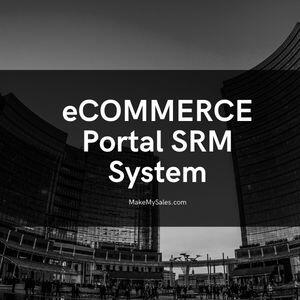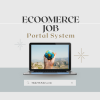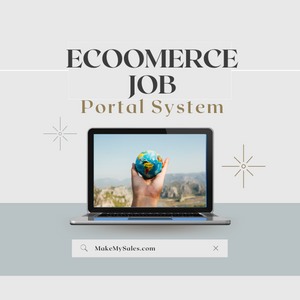What are ecommerce CRM systems?
Ecommerce CRM may be a term that you have recently come across online. A CRM system is something that allows you to store, manage and use customer relationship data to improve your business in specific ways. What you decide to use your systems for is entirely up to you, and the goals that you have laid out for your company. Let’s explore the concept of ecommerce CRM and CRM text solutions – what they are, what they look like and how you should use them.
Why customer experience and CRM are important for your business
CRM in ecommerce: The basics for beginners
Investopedia describes CRM as ‘the principles, practices and guidelines that an organization follows when interacting with its customers. The complete relationship includes direct interactions like sales and services, but also the ability to predict customer trends and behaviors that can eventually enhance individual experiences with your company.
So then, what are ecommerce CRM systems?
A customer relationship management system is a central location or piece of software that you can use to store customer details, accounts, information, and leads that can then be leveraged for future sales opportunities. Small and large businesses will benefit from some ecommerce CRM systems in that they firmly place client data in the ‘cloud’ – which means that it can be accessed by multiple people, anywhere, at any time, from any number of mobile devices. For the mobile developer who has spent time, energy and money building a responsive mobile e-commerce website, CRM is more important than ever. Using select CRM practices and processes, sales on an ecommerce website with integrated CRM will help you better understand your cross-channel customers, and what makes them buy from you.
For example, the United Methodist Church recently upgraded, connecting 35,000 churches together, with nine fully populated websites. An integrated ecommerce CRM system was needed to simplify transactional needs across multiple storefronts. They also needed a system that could be used by business partners without help, while maintaining easy maintenance processes. The church ended up using Microsoft Dynamics ERP System with CRM integration. Things like ordering, tracking and delivery, automation, credit card verification and shipping led to streamlined interdepartmental cooperation online, which saved the church thousands of man-hours and gave them access to detailed customer data for their marketing team.
Mobile CRM in the age of big data
Mobile CRM is an integral part of a well-thought out ecommerce customer relationship management system. One of the elements of this system could be the ability to use CRM SMS solutions in order to leverage those insights that you get from your data. Text solutions for mobile ecommerce CRM can greatly improve a mobile developer’s efforts to manage their customers once they have signed up, ordered, or bought from their website. With solutions like text notifications, alerts, and updates for product tracking and shipping – you can see how bulk text messaging has a place in the CRM arena.
The SHORT version: Give me the elevator pitch
In a nutshell, ecommerce CRM systems have the power to harness your customer data, so that you can gain insight into customer behavior, social experience, and purchasing habits – which gives your website the power to improve your offerings and increase your sales. With this kind of valuable market information, your ecommerce website or app is sure to expand rapidly in your chosen niche market.
Benefits of Ecommerce and CRM Integration
Today customer interactions happen over a number of channels from, but not limited to, eCommerce, social media, mobile devices, online marketplaces, forums, and calls to physical stores. Businesses today want to monitor and measure every small activity of their customers, across channels, hoping it will help them close more sales. This coupled with the increasing expectations of customers to provide a consistent and personalized experience across channels makes it imperative for businesses to have a centralized data base with all customer information.
But with businesses using independent systems to manage each one of these channels this is not an easy task to achieve. The solution is to integrate these independent systems to help them communicate and sync the required information with each other.
While true for all systems the business case is even stronger for two very important systems eCommerce and CRM. Customers today purchase online and expect their issues to be resolved on phone, order in store and track their shipment online, register once and have their information available everywhere, etc. Moreover the CRM and eCommerce integration introduces a wealth of new possibilities to track everything that happens online and leverage it to improve customer experience and drive more sales.
Few benefits of integrating eCommerce and CRM systems include
-
Improve Customer Experience
– eCommerce and CRM integration can help you improve customer experience in multiple ways
- By helping you provide self-service portals to let your customers access the order status, track shipment, check inventory and more.
- By leveraging the information to provide your customers the omni-channel experience
-
Targeted Marketing & Promotional Campaigns
– With information centralized you can now run targeted and personalized marketing & promotional campaigns. These targeted and personalized campaigns are bound to be more effective and drive sales to your business.
-
Increase Sales by Empower Sales Team
– Your sales/ customer service representatives can now access information like customer order history, payment history, product inventory and more and take informed sales decisions. For example, they can use the order history or browsing history (products viewed) to better cross-sell and up-sell products to your customers. In a B2B scenario, with access to customers’ payment history (YTD Sales, MTD Sales, A/R aging, Credit hold flag, etc.) your sales representatives can now better negotiate terms with your customers.
-
Improved Demand Planning and Scheduling
– Enables customer centric demand planning and scheduling across the company. The company can now better forecast the demand for their products and manage their inventory (sales, sourcing, manufacturing, etc.) better.
-
Integrated RMA Management
– RMA requests often originate from a CRM support case. Your customer support representative equipped with all the information is now better placed to resolve the customer issue via phone or via remote diagnostics.
-
Improved After Sales Service
– After sales service is one of the most critical aspects of a CRM. With all the necessary information available on their fingertips, your customer representatives can now provide better after sales service to your customers. They can now not only address customer concerns regarding customer orders, product information and inventory but also improve sales by recommending products to customers.
-
Reduced Costs and Losses due to Errors
– The automated information sync eliminates the need of manual data transfers which are prone to errors and can lead to unhappy customers (ultimately costing your business).
-
Gain Competitive Advantage
– The new found efficiency and benefits can be the key to differentiate you from the competition.








Priya Srinivasan –
Best eCommerce Portal CRM System